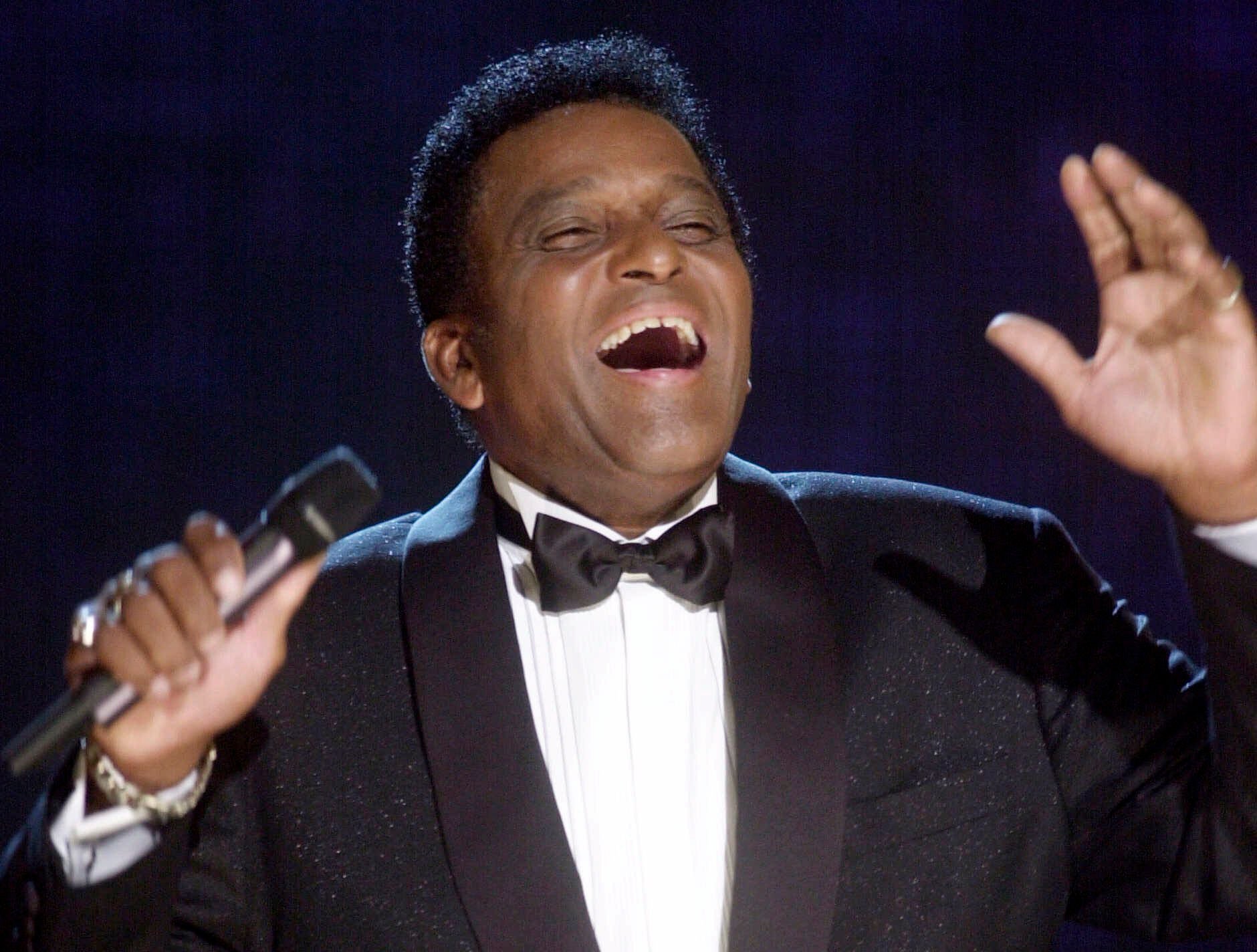‘He was a trailblazer’: Charley Pride, country music’s first Black superstar, dies from Covid complications
Dolly Parton paid tribute to one of her ‘dearest and oldest’ friends

Your support helps us to tell the story
From reproductive rights to climate change to Big Tech, The Independent is on the ground when the story is developing. Whether it's investigating the financials of Elon Musk's pro-Trump PAC or producing our latest documentary, 'The A Word', which shines a light on the American women fighting for reproductive rights, we know how important it is to parse out the facts from the messaging.
At such a critical moment in US history, we need reporters on the ground. Your donation allows us to keep sending journalists to speak to both sides of the story.
The Independent is trusted by Americans across the entire political spectrum. And unlike many other quality news outlets, we choose not to lock Americans out of our reporting and analysis with paywalls. We believe quality journalism should be available to everyone, paid for by those who can afford it.
Your support makes all the difference.Country music’s first Black superstar Charley Pride has died from Covid complications.
Pride, 86, who was the first Black member of the Country Music Hall of Fame, died in Dallas, Texas on Saturday, his publicist confirmed.
Dolly Parton and a string of celebrities took to Twitter to pay tribute to the musician.
“I’m so heartbroken that one of my dearest and oldest friends, Charley Pride, has passed away," Parton tweeted.
"It’s even worse to know that he passed away from Covid-19. What a horrible, horrible virus. Charley, we will always love you.
“Rest In Peace. My love and thoughts go out to his family and all of his fans.”
Pride released dozens of albums and sold more than 25 million records during a career that began in the mid-1960s.
Hits besides Kiss an Angel Good Morning in 1971 included Is Anybody Goin’ to San Antone, Burgers and Fries, Mountain of Love, and Someone Loves You Honey.
Filmmaker Ken Burns also took to Twitter to remember Pride.
“Charley Pride was a trailblazer whose remarkable voice and generous spirit broke down barriers in country music just as his hero Jackie Robinson had in baseball,” wrote Mr Burns.
"His last performance was his hit, Kiss an Angel Good Mornin. Now he is one.”
He had three Grammy Awards, more than 30 number one 1 hits between 1969 and 1984, won the Country Music Association’s Top Male Vocalist and Entertainer of the Year awards in 1972 and was inducted into the Country Music Hall of Fame in 2000.
“Charley Pride will always be a legend in Country music,” wrote Reba McEntire on Twitter.
“He will truly be missed but will always be remembered for his great music, wonderful personality and his big heart. My thoughts are with his wife Rozene and their family. RIP, Charley.”
The Smithsonian in Washington acquired memorabilia from Pride, including a pair of boots and one of his guitars, for the National Museum of African American History and Culture.
Until the early 1990s, when Cleve Francis came along, Pride was the only Black country singer signed to a major label.
In 1993, he joined the Grand Ole Opry cast in Nashville.
“They used to ask me how it feels to be the ‘first colored country singer,’" he told The Dallas Morning News in 1992.
“Then it was ‘first Negro country singer;’ then ‘first black country singer.’ Now I’m the ‘first African-American country singer.’ That’s about the only thing that’s changed. This country is so race-conscious, so ate-up with colors and pigments. I call it ‘skin hangups’ — it’s a disease.”
Pride was raised in Sledge, Mississippi, the son of a sharecropper. He had seven brothers and three sisters.
As a young man before launching his singing career, he was a pitcher and outfielder in the Negro American League with the Memphis Red Sox and in the Pioneer League in Montana.
After playing minor league baseball a couple of years, he ended up in Helena, Montana, where he worked in a zinc smelting plant by day and played country music in clubs at night.
After a tryout with the New York Mets, he visited Nashville and broke into country music when Chet Atkins, head of RCA Records, heard two of his demo tapes and signed him.
Throughout his career, he sang positive songs instead of the sad ones often associated with country music.
In 1994, he wrote his autobiography, Pride: The Charley Pride Story, in which he disclosed he was mildly manic depressive.
He had surgery in 1997 to remove a tumor from his right vocal cord.
“I’d like to be remembered as a good person who tried to be a good entertainer and made people happy, was a good American who paid his taxes and made a good living,” he said in 1985.
“I tried to do my best and contribute my part.”
He is survived by his wife, Rozene, whom he married in 1956; three children, Kraig, Dion and Angela; and several grandchildren.
AP contributed to this report




Join our commenting forum
Join thought-provoking conversations, follow other Independent readers and see their replies
Comments